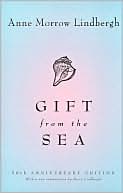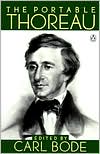The Burden of Responsibility: Blum, Camus, Aron, and the French Twentieth Century
Leon Blum, Albert Camus, and Raymond Aron might seem an unlikely combination. Blum was a fin-de-siecle aesthete who became the spiritual and political leader of the French non-Communist Left in the first half of this century. Camus, best known to millions of readers worldwide for his novels The Stranger and The Plague, was a wartime Resistance figure who played a prominent part in post-1945 intellectual life in France before dying tragically young in a car crash in 1960. Aron, a contemporary...
Search in google:
Using the lives of the three outstanding French intellectuals of the twentieth century, renowned historian Tony Judt offers a unique look at how intellectuals can ignore political pressures and demonstrate a heroic commitment to personal integrity and moral responsibility unfettered by the difficult political exigencies of their time.Through the prism of the lives of Leon Blum, Albert Camus, and Raymond Aron, Judt examines pivotal issues in the history of contemporary French society—antisemitism and the dilemma of Jewish identity, political and moral idealism in public life, the Marxist moment in French thought, the traumas of decolonization, the disaffection of the intelligentsia, and the insidious quarrels rending Right and Left. Judt focuses particularly on Blum's leadership of the Popular Front and his stern defiance of the Vichy governments, on Camus's part in the Resistance and Algerian War, and on Aron's cultural commentary and opposition to the facile acceptance by many French intellectuals of communism's utopian promise. Severely maligned by powerful critics and rivals, each of these exemplary figures stood fast in their principles and eventually won some measure of personal and public redemption.Judt constructs a compelling portrait of modern French intellectual life and politics. He challenges the conventional account of the role of intellectuals precisely because they mattered in France, because they could shape public opinion and influence policy. In Blum, Camus, and Aron, Judt finds three very different men who did not simply play the role, but evinced a courage and a responsibility in public life that far outshone their contemporaries. "An eloquent and instructive study of intellectual courage in the face of what the author persuasively describes as intellectual irresponsibility."—Richard Bernstein, New York Times David Coward Anyone who regrets the absencein intellectual discourseof "honor," "spirit," "conscience" and their ilkwill find in Judt a great deal of talk worth remembering. —The New York Times Book Review
PrefaceIntroduction: The Misjudgment of Paris31The Prophet Spurned: Leon Blum and the Price of Compromise292The Reluctant Moralist: Albert Camus and the Discomforts of Ambivalence873The Peripheral Insider: Raymond Aron and the Wages of Reason137Further Reading183Index187
\ Stanley HoffmanThe Burden of Responsibility is beautifully written and often moving. . . rich and honorable book. -- Wall Street Journal\ \ \ \ \ Richard Bernstein...An elegantly difficult, eloquent and instructive study of intellectual courage in the face of...intellectual irresponsibility....These portraits in courage are not for specialists alone, but they are not entirely accessible...especially if you are unfamiliar wtih the main strands of 20th-century European history and thought....Still...a morally lucid and penetrating book...\ — The New York Times\ \ \ David CowardAnyone who regrets the absencein intellectual discourseof "honor," "spirit," "conscience" and their ilkwill find in Judt a great deal of talk worth remembering. —The New York Times Book Review\ \ \ \ \ Library JournalIn these essays, originally lectures at the University of Chicago, Judt (European studies, NYU) accuses French intellectuals of "moral irresponsibility"--as he did in his earlier Past Imperfect: French Intellectuals, 1944-1956. Once again, he expresses his conviction that French intellectuals failed to lead their country culturally and politically from the pre-World War II years through the mid-1970s. Here, however, Judt presents the antidote to his earlier book, examining the lives of Leon Blum, Albert Camus, and Raymond Aron. What set them apart from other intellectuals was the way they looked beyond the political pressures of the day to take moral stands on issues that included anti-Semitism, decolonization, ideological and political quarrels, communism, and socialism. These three figures stood courageously by their views, guided by moral integrity and personal responsibility, and eventually gained some redemption in the eyes of the public. -- Ali Houissa, Cornell University, Ithaca, New York\ \ \ \ \ BooknewsJudt, the Erich Maria Remarque Professor of European Studies and director of the Remarque Institute at NYU, shows how Blum, Camus, and Aron showed integrity and fortitude in the midst of personal and political attacks, held firmly to their beliefs, and lived in accordance with their political and moral principles.\ \ \ \ \ Richard Bernstein...[An] elegantly difficult, eloquent and instructive study of intellectual courage in the face of...intellectual irresponsibility....[These] portraits in courage are not for specialists alone, but they are not entirely accessible...especially if you are unfamiliar wtih the main strands of 20th-century European history and thought....Still...a morally lucid and penetrating book... -- The New York Times\ \ \ \ \ David CowardAnyone who regrets the absence, in intellectual discourse, of "honor," "spirit," "conscience" and their ilk, will find in Judt a great deal of talk worth remembering. -- The New York Times Book Review\ \ \ \ \ Tzvetan TodorovTony Judt's fine book...is deeply welcome, for it leads its readers, even those who may not plunge into the study of the works it discusses, to meditate on these large and exemplary fates.\ — The New Republic\ \ \ \ \ Kirkus ReviewsApproaching French intellectual history from a novel perspective, Judt (European Studies/New York Univ.;Past Imperfect: French Intellectuals, 1944-1956) focuses on three leading 20th-century figures who had the courage to disagree with political sensibilities that prevailed among their contemporaries. Leon Blum, the leader of the French Socialist party and prime minister in the interim government of December 1946, is remembered mainly for introducing a 40-hour work week, wage increases, and paid vacation. His actual contribution to French political thought, however, went far beyond mere social reform. Blum was one of the first to warn French communists against the dangers of Bolshevik-style dictatorial terror. A literary critic, jurist, and politician, Blum was "a mirror held up to his country," reflecting many of its strengths and weaknesses. Judt's second subject, Albert Camus, shared Blum's anti-Stalinist conviction and took every opportunity to debunk revolutionary myths. In contrast to radical intellectuals of the postwar period, Camus opted to defend absolute values in an age of relativism and emphasized the ethical dimension of contemporary dilemmas. A native of Algeria, Camus opposed the independence of his homeland, advancing instead an idea of an integrated Arab-European community. Finally, Raymond Aron, an existential philosopher, journalist, and member of the academic elite, echoed Blum and Camus in his polemic against the French intelligentsia's Marxist leaning and in his firm opposition to Soviet totalitarianism. While Aron did not recognize any moral debt owed by the French to Arabs, he promoted Algerian independence for the sake of order and stability inFrance itself. A realist above all, Aron angered many Europeans by suggesting that a stable, democratic Germany reconstituted on equal footing within the European community was the best guarantee of security on the continent.\ \








